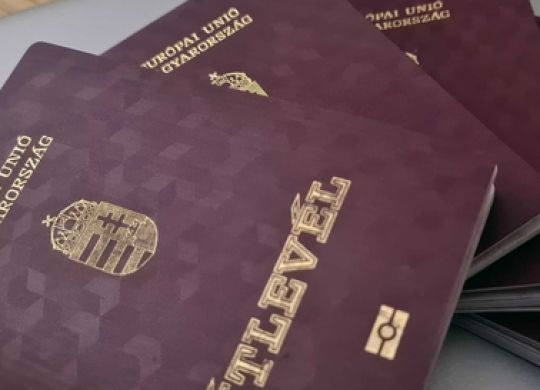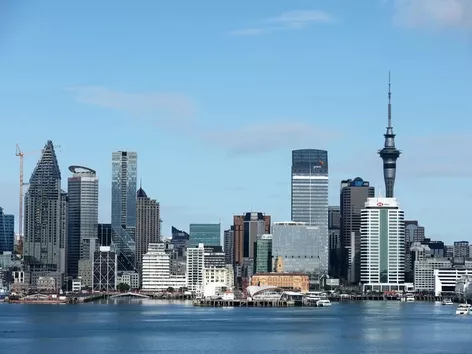Non-lucrative Spanish visa in 2025: criteria, requirements and common mistakes when designing
Table of contents
- Who Should Consider Applying for a Spanish Non-Profit Visa?
- What does a non-profit visa to Spain allow?
- What can an expat not do on the basis of a non-profit visa?
- Requirements for obtaining a Non-lucrative visa to Spain
- How much money do you need to have to get a non-profit visa to Spain?
- How to prove the availability of income to obtain a non-profit visa in Spain?
- Common mistakes to avoid when applying for a non-profit visa to Spain

Expats from different parts of the world are attracted to the Spanish way of life. Any foreigner who has a sufficient level of financial support can move to the country. Find out what you need to apply for a non-profit visa to Spain and the most common mistakes applicants make
The Spanish non-profit visa is designed for citizens of non-EU countries who have sufficient financial means to live in the country. Based on this type of permit, an expat can enjoy life in Spain without having to work.
Considering that the Spanish Congress recently voted to close the Golden Visa program, the Non-lucrative visa Spain 2 could be a good alternative to this permit.
Who can apply for a non-profit visa to Spain? We will talk about the main criteria, requirements and typical mistakes made by foreigners during the preparation of documents below.
Who Should Consider Applying for a Spanish Non-Profit Visa?
A non-profit visa to Spain is for you if you:
- You plan to live in Spain.
- Planning to live in Spain after retirement.
- Have stable passive income outside of Spain.
- You plan to work remotely.
- We would like to spend a year in Spain in order to get a work permit next year.
What does a non-profit visa to Spain allow?
On the basis of a non-profit visa, an expat can:
- Live in Spain for one year: the visa can be extended for another 2 years and another 2 years after that. After five years, there is an opportunity to apply for permanent residence and eventually for Spanish citizenship.
- Alternatively: after 12 months you can apply for another type of visa, such as a work visa or a study visa.
- Move with your family: unlike other visas that require you to have already lived in Spain for a certain period before your family moves. A non-profit visa allows your spouse and children to live in Spain with you, provided you can demonstrate sufficient funds.
- Invest funds for income.
What can an expat not do on the basis of a non-profit visa?
- Carry out any type of economic or professional activity in Spain.
- Work in Spain, in a Spanish company or open a branch of your own business in Spain.
- To work in companies located outside the territory of Spain, i.e. to travel between Spain and another country to carry out their work.
Requirements for obtaining a Non-lucrative visa to Spain
To qualify for a non-profit visa, you must meet certain requirements:
- Be a citizen of a country that is not part of the EU.
- Confirm the presence of sufficient funds to live in Spain.
- Have a clean criminal record.
- Do not have any diseases that may pose a threat to the health of the Spanish population.
- Have a valid health insurance policy, as the Spanish national insurance does not apply to holders of this type of permit.
How much money do you need to have to get a non-profit visa to Spain?
To successfully apply for a non-profit visa, you need to demonstrate financial stability. As the main applicant, you must show that:
- your monthly income is 2,400 euros or an annual income of 28,800 euros;
or
- you have savings in the account in the amount of at least 60,000 euros.
If you are planning to move with your family, be prepared to show additional financial capabilities. For each family member included in the non-profit visa application, you must demonstrate an additional €7,200 per year.
How to prove the availability of income to obtain a non-profit visa in Spain?
Any income can be used to confirm the financial stability of the applicant:
- regular monthly income abroad (for example, salary for remote work);
- pensions;
- income generating assets.
To prove your financial stability, you can use bank statements, pension documents and supporting documents from the bank. Savings must be in your name and bank statements must not be older than 6 months.
You will need health insurance to safely move and find employment in a new country. You can issue an extended policy on our website using the link.
Common mistakes to avoid when applying for a non-profit visa to Spain
When applying for a non-profit visa, expats often make certain mistakes, we will tell you about the most common of them:
1. Lack of a document confirming the origin of the funds.
According to the requirements, applicants must demonstrate sufficient economic standing through savings or regular income to support themselves and their families.
You will often be asked to provide documentary evidence of the origin of your savings. For example, proof of the sale of the house if it is savings or a copy of the signed lease if the rental property is reported as passive income. Documentary confirmation of share ownership when calculating dividends, etc. The more documentary evidence you provide, the better.
2. Confirmation of the status of an unemployed person
If you are not a pensioner, you will have to provide documentary evidence that you are not working:
- Document on the termination of the employment contract.
- If you are taking leave from your current job, you will need a letter from your employer.
- If you are self-employed/owner of your own company, you will need documents to prove that you are no longer employed.
Failure to provide proof of incapacity at the time of application almost guarantees rejection.
3. Outdated or incorrect documents
Except for the passport, all other required documents must be no older than three months. It is necessary to collect the documents at most a month or two before the registration. You should also take into account the week or more it will take to get them legalized and translated.
Remember that the meetings are very short and only involve an official check that you have provided the necessary documents. If they see that any documents are missing, you will need to make another appointment to bring the correct documentation. If you need a second appointment due to missing documents, you run the risk of your documents expiring and having to renew them.
4. Lack of an appropriate health insurance policy
Health insurance is a mandatory condition for applying for a low-cost visa. You must have private health insurance that covers all illnesses without any additional charges. This requirement is explained by the fact that the Spanish government does not cover any medical expenses for holders of disadvantaged visas.
Your health insurance must be comprehensive and comparable to the services offered by the Spanish public health system. It should cover:
- 100% of medical expenses;
- Minimum coverage of 30,000 euros;
- Hospitalization, surgery and emergency care;
- No exclusions for pre-existing conditions, co-pays or coverage limitations.
5. Compulsory schooling
Another thing to keep in mind when applying for this type of residence is that if you have children between the ages of 6 and 16, you must prepare an education plan for them before applying.
The process consists of enrolling the youth in a public school (many foreigners choose an international school). This should be done without prior confirmation or guarantee that the non-commercial visa application will be approved.
6. Lack of proof of residence in the country
Although the current Law on Foreigners in Spain does not state that proof of residence in the country is a mandatory requirement for residence, there have been cases where some embassies have required it.
7. Errors during the interview
During the interview, the embassy staff will ask a series of questions to verify the veracity of the information in the file and to obtain any additional clarifications they deem necessary.
They will ask about family or work connections that support the application, justification for choosing to live in Spain, whether you have ever visited Spain, etc.
Many people start to get nervous at this point, so be careful with your answers so as not to raise doubts.
A non-profit visa to Spain is a good opportunity for financially independent expats to get a residence permit in the country and enjoy the Spanish lifestyle.
You can find out why Spain is recognized as the best country for digital nomads here. A detailed guide to the health care system in Spain is available at the link.
Igor Usyk - Head of Legal Department at Visit World
To ensure a safe move to Spain, I advise you to contact a specialist. My colleagues, qualified specialists with legal education, will help you avoid unpleasant situations during migration abroad.
Products from Visit World for a comfortable trip:
Checklist for obtaining a visa and necessary documents in Spain;
Legal advice on immigration to Spain;
Travel insurance for foreigners in Spain;
Medical insurance all over the world.
We monitor the accuracy and relevance of our information, so if you notice any errors or inconsistencies, please contact our hotline.
Frequantly
asked questions
How difficult is it to get a non-profit visa to Spain?
How long can you stay in Spain with a non-profit visa?
Do you pay taxes in Spain if you have a non-profit visa?
Recommended articles
2 min
Expats
Hungary Golden Visa: available investment options in 2025, requirements and package of documents
The Golden Visa program has resumed in Hungary since July 1, 2024, allowing foreigners to obtain a residence permit through investment. Find out what investment methods are available in 2025 and what are the features of the Golden Visa program in Hungary
12 Jan. 2025
More details2 min
Residence permit
The Portuguese D7 visa can be obtained by financially independent foreigners with passive income. The main advantage of the permit is the ability to issue a residence permit in the country for a period of 2 years. Find out what conditions for obtaining a Portuguese D7 visa are relevant in 2025
09 Jan. 2025
More details1 min
Investment
New Zealand's Golden Visa (Active Investor Plus) program has lost popularity among foreign investors in recent years. However, the country's leadership aims to change the conditions to make it more attractive to expats. Find out what conditions for obtaining a residence permit are relevant in 2025
11 Feb. 2025
More details1 min
Work
Job seeker visa Spain: what is this permit, conditions for obtaining it and changes for 2025?
Spain is actively working on changes to its own migration policy, as the local labor market is experiencing an acute shortage of specialists. Among the main innovations is the extension of the validity of the job seeker visa from three months to one year. Find out who is eligible to receive a Spanish job seeker visa and what is the procedure for obtaining a permit
06 Jan. 2025
More detailsAll materials and articles are owned by VisitWorld.Today and are protected by international intellectual property regulations. When using materials, approval from VisitWorld.Today is required.
